
The 2nd solo album from Sweden-based pianist and Merce Cunningham-collaborator Kristine Scholz, performing on a 1921 Steinway & Sons Model A piano, recording four movements from composer Hans Otte's seminal work "Das Buch der Klänge" (1979-82), and an interpretation of John Cage's "Music for Piano 4-19", compatible pieces from two contemporary and visionary composers.
In Stock
Quantity in Basket: None
Log In to use our Wish List
Shipping Weight: 3.00 units
EU & UK Customers:
Discogs.com can handle your VAT payments
So please order through Discogs
Sample The Album:
Kristine Scholz-piano
Hans Otte-composer
John Cage-composer
Click an artist name above to see in-stock items for that artist.
UPC: 7320470260289
Label: thanatosis produktion
Catalog ID: THTCD9
Squidco Product Code: 31759
Format: CD
Condition: New
Released: 2022
Country: Sweden
Packaging: Cardboard Gatefold w/ Booklet
Recorded at Studio Tavastgatan, in Stockholm, on March 10th, 2021, by Goren Stegborn
"Featuring the Sweden-based pianist, new music pioneer, and former Merce Cunningham-collaborator Kristine Scholz, the album Scholz plays Otte and Cage is focusing the music of two composers who over time came to mean a great deal to one another: Hans Otte (1926-2007) and John Cage (1912-1992). On the album, four movements from Otte's seminal work "Das Buch der Klänge" (1979-82) is combined with a stunning interpretation of Cage's "Music for Piano 4-19" (1953).
As the extensive liner notes by fellow pianist Mats Persson informs us, Otte and Cage first met in 1950s, at Yale University. Though, their close and mutual friendship developed later, after Otte had become the music director for Radio Bremen and had founded the festivals pro musica antiqua and pro musica nova. Cage was a frequently recurring guest at these festivals (where also Scholz has performed in duo with Mats Persson, with whom she's been working continuously since 1969).
"Das Buch der Klänge" is a brilliant example of Otte's ambitions to "bring sound closer to the listener/observer and thus give people the possibility to say in, rest in and live with sound". These qualities also resonates in "Music for Piano 4-19" by Cage, who already in the late 40s talked about liberating sounds from intentions and traditional ties.
As Persson explains regarding "Music for Piano", "[t]he score consists of 16 pages, which can be played as separate pieces or as one continuous piece" or "together with parts of/or the whole of Music for Piano 21-84 [...] I Ching operations decide the number of notes on each page, clefs (treble or bass), accidentals (#, b or natural) and technique (ordinario, pizzicato or muted) for each note. Tempi and dynamics are left to the interpreter to decide." With the right pedal being depressed throughout, a meditative sonic landscape emerges, wherein Scholz' unique capacity to highlight the slow-moving melodies inherent in the score, creates a calm yet distinct forward-movement.
Kristine Scholz was born in 1944 in Wüstebrise, Silesia, Germany. After studies in Hamburg 1964-68, she moved to Cologne in 1969 and studied there for three years, with Aloys Kontarsky among others. In Cologne she also met Mats Persson. Together, they have performed as a piano duo for almost five decades, toured internationally and premiered work by composers such as Aldo Clementi, Luca Lombardi, Chris Newman, Christian Wolff, Zoltán Jeney and Ellen Arkbro. Scholz also performs solo and with different ensembles regularly. Furthermore, she has played music in several theater and dance productions.
Scholz moved to Sweden in 1972, and the recordings on this release were made in the studio she has used ever since, on Tavastgatan in Stockholm. The piano she is using on this recording is a Steinway & Sons, model A, from 1921."-Thanatosis Produktion
Artist Biographies
• Show Bio for Kristine Scholz "Kristine Scholz (born in Oława, Poland - once Ohlau in German Silesia) is a German pianist. Scholz studied at Hochschule für Musik und Theater Hamburg with Eckhart Besch and Konrad Richter, as well as Hochschule für Musik Köln with Wilhelm Hecker and Aloys Kontarsky. Since the early seventies, Scholz has made Sweden the base of her pianistic activity." ^ Hide Bio for Kristine Scholz • Show Bio for Hans Otte "Hans Günther Franz Otte (3 December 1926, Plauen - 25 December 2007, Bremen) was a German composer, pianist, radio promoter, and author of many pieces of musical theatre, sound installations, poems, drawings, and art videos. From 1959 to 1984 he served as music director for Radio Bremen. From the early 1960s onwards, Otte frequently presented contemporary experimental American composers in his Bremen radio festival Pro Musica Nova, among them in those days completely unknown people like John Cage, David Tudor, Terry Riley, and La Monte Young. From 1959 on, Otte lived and worked in Bremen, Germany. His catalogue of compositions contains more than 100 works. Otte had studied in Germany, Italy, and at Yale University in the United States. His teachers included the composer Paul Hindemith and the pianist Walter Gieseking. Some of Otte's works, especially his extended suites for solo piano, are characterized by very minimal means but are nevertheless quite subtle and sophisticated in their architecture and expression. Das Buch der Klänge (The Book of Sounds, 1979-82) and Stundenbuch (Book of Hours, 1991-98) are his best known pieces in this genre, and Otte often performed them himself. His last public recital was given in Amsterdam in 1999. Recordings of these works, with Otte as performer, are available on CD. In his works, Otte drew significantly on European and Asian spirituality, integrating various prayers into the fabric of the music. In 1991 his work "KlangHaus" became a permanent interactive sound installation in the Neues Museum Weserburg Bremen in Bremen, Germany. [...]" ^ Hide Bio for Hans Otte • Show Bio for John Cage "John Milton Cage Jr. (September 5, 1912 - August 12, 1992) was an American composer, music theorist, writer, philosopher, and artist. A pioneer of indeterminacy in music, electroacoustic music, and non-standard use of musical instruments, Cage was one of the leading figures of the post-war avant-garde. Critics have lauded him as one of the most influential American composers of the 20th century. He was also instrumental in the development of modern dance, mostly through his association with choreographer Merce Cunningham, who was also Cage's romantic partner for most of their lives. Cage is perhaps best known for his 1952 composition 4′33″, which is performed in the absence of deliberate sound; musicians who present the work do nothing aside from being present for the duration specified by the title. The content of the composition is not "four minutes and 33 seconds of silence," as is often assumed, but rather the sounds of the environment heard by the audience during performance. The work's challenge to assumed definitions about musicianship and musical experience made it a popular and controversial topic both in musicology and the broader aesthetics of art and performance. Cage was also a pioneer of the prepared piano (a piano with its sound altered by objects placed between or on its strings or hammers), for which he wrote numerous dance-related works and a few concert pieces. The best known of these is Sonatas and Interludes (1946-48). His teachers included Henry Cowell (1933) and Arnold Schoenberg (1933-35), both known for their radical innovations in music, but Cage's major influences lay in various East and South Asian cultures. Through his studies of Indian philosophy and Zen Buddhism in the late 1940s, Cage came to the idea of aleatoric or chance-controlled music, which he started composing in 1951. The I Ching, an ancient Chinese classic text on changing events, became Cage's standard composition tool for the rest of his life. In a 1957 lecture, Experimental Music, he described music as "a purposeless play" which is "an affirmation of life - not an attempt to bring order out of chaos nor to suggest improvements in creation, but simply a way of waking up to the very life we're living"." ^ Hide Bio for John Cage
7/1/2025
Have a better biography or biography source? Please Contact Us so that we can update this biography.
7/1/2025
Have a better biography or biography source? Please Contact Us so that we can update this biography.
7/1/2025
Have a better biography or biography source? Please Contact Us so that we can update this biography.
Track Listing:
1. Das Buch Der Klange IV 4:46
2. Das Buch Der Klange II 9:55
3. Das Buch Der Klange IX 2:54
4. Das Buch Der Klange XII 4:47
5. Music For Piano 4-19 19:19
Compositional Forms
Avant-Garde
Piano & Keyboards
Solo Artist Recordings
European Improvisation, Composition and Experimental Forms
John Cage
Staff Picks & Recommended Items
New in Compositional Music
Search for other titles on the label:
thanatosis produktion.


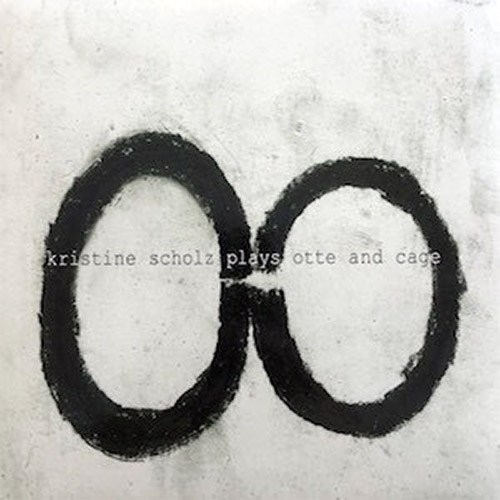

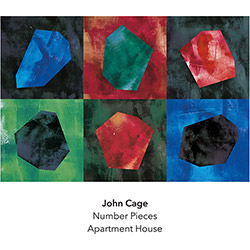


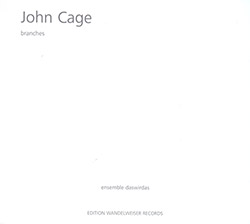

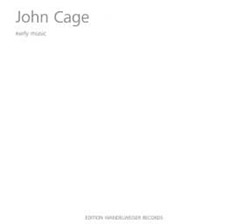




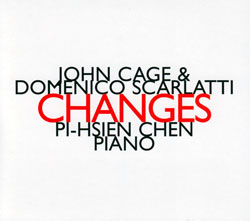
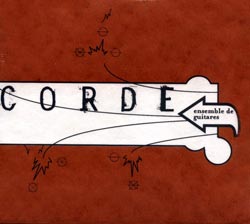





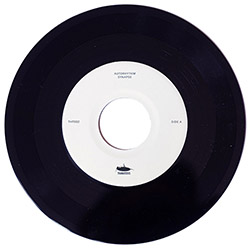
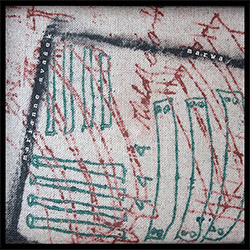
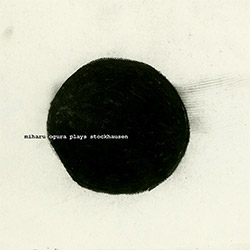
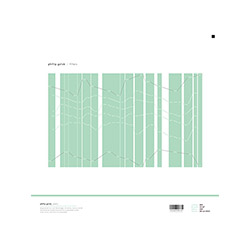
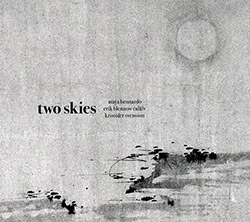

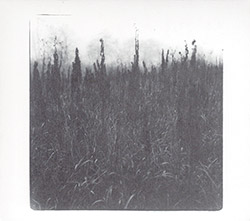











![Deupree, Jerome / Sylvie Courvoisier / Lester St. Louis / Joe Morris: Canyon [2 CDs]](https://www.teuthida.com/productImages/misc4/36404.jpg)


![Eternities: Rides Again [CASSETTE]](https://www.teuthida.com/productImages/misc4/36247.jpg)

![Lopez, Francisco: Untitled (2021-2022) [2 CDs]](https://www.teuthida.com/productImages/misc4/36438.jpg)




![Eventless Plot | Haarvol: The Subliminal Paths [CASSETTE + DOWNLOAD]](https://www.teuthida.com/productImages/misc4/36232.jpg)












![Eventless Plot | Francesco Covarino: Methexis [CASSETTE + DOWNLOAD]](https://www.teuthida.com/productImages/misc4/36231.jpg)



![Das B (Mazen Kerbaj / Mike Majkowski / Magda Mayas / Tony Buck): Love [VINYL]](https://www.teuthida.com/productImages/misc4/36329.jpg)



![Hemphill Stringtet, The: Plays the Music of Julius Hemphill [VINYL]](https://www.teuthida.com/productImages/misc4/36409.jpg)



![Halvorson, Mary Septet: Illusionary Sea [2 LPS]](https://www.teuthida.com/productImages/misc4/17952.jpg)






![Money : Money 2 [2 CDs]](https://www.teuthida.com/productImages/misc4/35894.jpg)




![Klinga, Erik: Elusive Shimmer [VINYL]](https://www.teuthida.com/productImages/misc4/36258.jpg)
![CHANGES TO blind (Phil Zampino): Volume 9 - I Wave on a Fine Vile Mist [CD + DOWNLOAD]](https://www.teuthida.com/productImages/misc4/36061.jpg)

![Wallmart / Rubbish: Asset Protection [split CD]](https://www.teuthida.com/productImages/misc4/35900.jpg)


![+Dog+: The Family Music Book Vol. 5 [2 CDs]](https://www.teuthida.com/productImages/misc4/35897.jpg)
![Kuvveti, Deli : Kuslar Soyledi [CASSETTE w/ DOWNLOAD]](https://www.teuthida.com/productImages/misc4/36107.jpg)

![Nakayama, Tetsuya: Edo Wan [CASSETTE w/ DOWNLOAD]](https://www.teuthida.com/productImages/misc4/36105.jpg)




![Yiyuan, Liang / Li Daiguo: Sonic Talismans [VINYL]](https://www.teuthida.com/productImages/misc4/35957.jpg)
![Brown, Dan / Dan Reynolds: Live At The Grange Hall [unauthorized][CASSETTE]](https://www.teuthida.com/productImages/misc4/36245.jpg)







![Palestine, Charlemagne / Seppe Gebruers: Beyondddddd The Notessssss [VINYL]](https://www.teuthida.com/productImages/misc4/36206.jpg)
![Palestine, Charlemagne / Seppe Gebruers: Beyondddddd The Notessssss [NEON GREEN VINYL]](https://www.teuthida.com/productImages/misc4/36207.jpg)

![Laubrock, Ingrid: Purposing The Air [2 CDs]](https://www.teuthida.com/productImages/misc4/35639.jpg)
![Yoko, Ono / The Great Learning Orchestra: Selected Recordings From Grapefruit [2 CDs]](https://www.teuthida.com/productImages/misc4/35841.jpg)








![Zorn, John / JACK Quartet: The Complete String Quartets [2 CDs]](https://www.teuthida.com/productImages/misc4/35609.jpg)

![Lonsdale, Eden: Dawnings [2 CDs]](https://www.teuthida.com/productImages/misc4/35480.jpg)



![Sorry For Laughing (G. Whitlow / M. Bates / Dave-Id / E. Ka-Spel): Rain Flowers [2 CDS]](https://www.teuthida.com/productImages/misc4/35985.jpg)

![Rolando, Tommaso / Andy Moor : Biscotti [CASSETTE w/ DOWNLOADS]](https://www.teuthida.com/productImages/misc4/36106.jpg)


![Electric Bird Noise / Derek Roddy: 8-10-22 [CD EP]](https://www.teuthida.com/productImages/misc4/35970.jpg)








![Elephant9 : Mythical River [VINYL]](https://www.teuthida.com/productImages/misc4/34624.jpg)



![Elephant9 with Terje Rypdal: Catching Fire [VINYL 2 LPs]](https://www.teuthida.com/productImages/misc4/35355.jpg)
![Deerlady (Obomsawin, Mali / Magdalena Abrego): Greatest Hits [VINYL]](https://www.teuthida.com/productImages/misc4/34876.jpg)







![Surplus 1980: Illusion of Consistency [CD]](https://www.teuthida.com/productImages/misc4/35069.jpg)
![Staiano, Moe: Away Towards the Light [VINYL + DOWNLOAD]](https://www.teuthida.com/productImages/misc4/35037.jpg)
![Coley, Byron: Dating Tips for Touring Bands [VINYL]](https://www.teuthida.com/productImages/misc4/17906.jpg)

![Lost Kisses: My Life is Sad & Funny [DVD]](https://www.teuthida.com/productImages/misc4/lostKissesDVD.jpg)